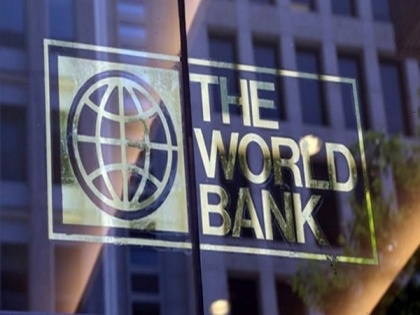World Bank approves additional financing for Kerala climate resilience project
By ANI | Published: June 17, 2023 09:49 PM2023-06-17T21:49:45+5:302023-06-17T21:50:02+5:30
New Delhi [India], June 17 : The World Bank's Board of Directors have approved a $150 million loan to ...

World Bank approves additional financing for Kerala climate resilience project
New Delhi [India], June 17 : The World Bank's Board of Directors have approved a $150 million loan to support the 'Resilient Kerala Program' to continue strengthening the state's preparedness against natural disasters, climate change impacts, and disease outbreaks.
This additional financing will further deepen Kerala's resilience in the critical areas of coastal erosion and water resource management.
Kerala is highly vulnerable to natural disasters and prone to the effects of climate change, given its location along the Southern Indian coast. In 2021, floods and landslides in the state led to a number of deaths and damages of around $100 million. Recurring disasters such as these have left devastating impacts on the livelihoods of vulnerable groups, especially women farmers and fisherwomen.
This financing complements the bank's earlier investment of $125 million and the overall support of the two projects is expected to protect nearly 5 million people from the impacts of floods.
World Bank's country director for India, Auguste Tano Kouame, said, "Through this additional financing, the World Bank will continue supporting Kerala in increasing its resilience to climate change. The project will focus on addressing coastal erosion along vulnerable areas of the state impacting millions of lives."
Forty-five per cent of Kerala's 580 km coastline is eroding due to sustained levels of urbanization and deforestation. Heavy rainfall wreaks havoc in the upland districts and rivers of the Pamba River basin, including in the Idukki district where the river starts.
Studies have also shown that forest cover here has fallen by over 44 per cent between 1925 and 2012, while settlements have increased by 400 per cent.
The additional financing will expand and deepen the state's resilience to mitigate the impacts of coastal erosion by building a shoreline management plan. The plan will assess the current and future shoreline changes in the state and create policies to address the risks to environmental resources, human settlements, and infrastructure along the coast.
After the devastating floods and landslides of 2018, the World Bank invested in building Kerala's capabilities to respond to shocks to the state's economy and prevent the loss of lives, assets, and livelihoods. The program supported important policy and institutional reforms in the state, including improved management of the Pamba River basin, sustainable and climate-resilient agriculture, and risk-informed land use. and disaster management planning at local levels.
Additional resources will now address hotspots and vulnerable coastal erosion sites where immediate attention is needed. It will also help develop an integrated river basin management plan for the Pamba River basin and support the restoration of rivers and lake embankments to minimize flood damages in future.
The project will help the state develop a climate budget and a roadmap to help fill gaps in the state's open data and digital systems to reduce people's vulnerability to natural hazards. Currently, satellite maps, risk maps and sectoral data are not integrated into a single platform, leading to gaps in the planning and execution of public sector investments.
"The additional financing will help scale up the coverage of the original program from four to nine coastal districts in the state," Elif Ayhan, Balakrishna Menon Parameswaran, Natsuko Kikutake and Deepak Singh, task team leaders for the project said.
"By building the state's technical capacities, this new financing will focus on improving its ability to plan, budget, and implement initiatives that will help Kerala achieve climate resilience," they added.
The $150 million loan from the International Bank for Reconstruction and Development (IBRD) has a final maturity of 14 years, including a grace period of six years.
Disclaimer: This post has been auto-published from an agency feed without any modifications to the text and has not been reviewed by an editor
Open in app